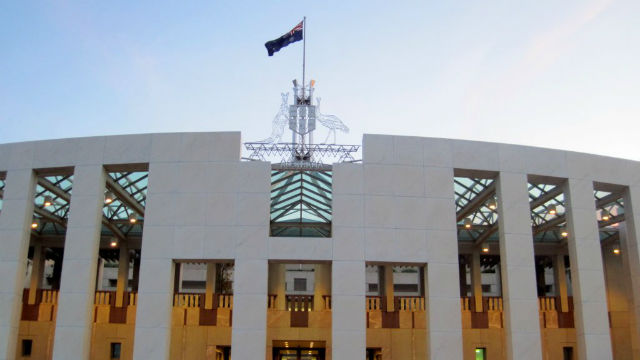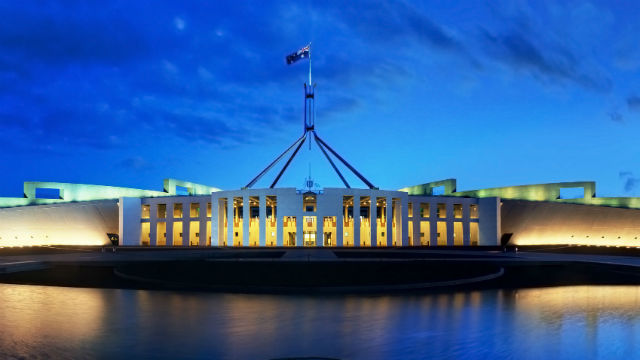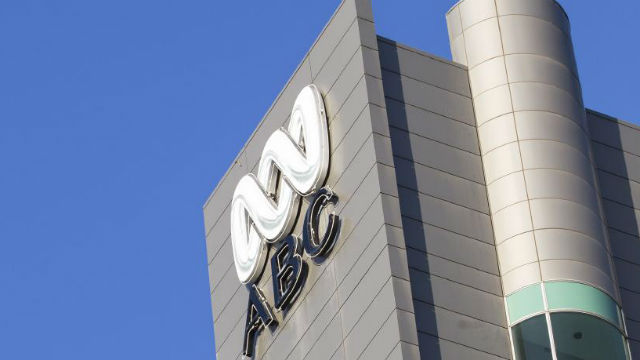
This is an edited version of the speech given to the 2025 CIS Consilium event by distinguished British print and broadcast journalist Andrew Neil.
My purpose tonight is not to give you my take on the plight of the Australian centre-right. That would be presumptuous, even ridiculous. My mother also taught me it was unseemly to intrude into private grief. Rather it is to indicate the predicaments of the mainstream right across the democratic world, leaving it to you to determine what is relevant and what is not.
I appreciate Australia remains to some extent exceptional — still somewhat inured from global trends that have brought the centre right elsewhere to its knees. But these developments are so well-entrenched and increasingly global, it would be remarkable if Australia was not in some way affected — or infected.
Additionally, we live in a political age in which the ‘unlikely’ increasingly becomes the ‘likely’ — and with a speed that can confound. A rapidity similar to Hemingway’s description of going bankrupt in one of his novels — at first slowly, then suddenly, very suddenly.
You may still determine, even after my remarks, that Australia’s centre-right is indeed inoculated from foreign trends — that the Liberal Party’s thumping defeat in this year’s general election is not a harbinger of bigger troubles to come, nor the beginning of the end.
So be it. As Sir Humphrey would always say to the Minister in that famous BBC Westminster sitcom, Yes Minister, whenever the politician tried to strike out on his own — ‘a very brave decision, Minister, very brave indeed’. But that is your call. And if you turn out to be wrong — well, after tonight, you can’t say you weren’t warned.
The British experience
Let’s start with Britain. You know the centre-right is likely to be in trouble almost everywhere if the Conservatives are in trouble in Britain. And, boy, are they in trouble …
The British Conservative Party — also known as the Tory Party — is the oldest, most successful political party in the history of democracy. Around for 200 hundred years. For much of that time in power — far more than any other political party anywhere. Other parties came and went in historical political transformations. Whig to Liberal. Liberal to Labour. Labour to New Labour. But the Tories remained a constant.
No longer. For the first time ever the very survival of the Tories is on the line. It could already be teetering on extinction. After 14 desultory years in power, the Conservatives were thumped by Labour in the 2024 general election, winning less than 24% of the vote, their worst share since 1835.
In the 2019 election they had won by almost a landslide, with 44% of the vote. So the collapse in five years was precipitous. Of course that could never happen to the Australian Liberal Party. What? It just has?! And in three years? I’m sure that can’t be right.
Since the Tories’ historic defeat, things have only got worse. The latest polls put the Tories on around 17%, sometimes lower, sometimes behind not just Labour but the centre-left Liberal Democrats, the all-purpose trash can of British politics.
They now have only 120 seats in the 650-seat House of Commons. On current polling, if a general election were held today they would be reduced to a rump of under 45 seats, which would not long survive on its own.
By contrast their new rivals on the Populist Right, Nigel Farage’s Reform Party, is regularly over 30% in the polls and rising. If that vote share was replicated in a general election Reform would, at the very least, emerge as the largest party.
Labour’s share of the vote is almost as dire as the Tories’. Though elected by a landslide a mere 15 months ago — but on only 34% of the vote (Labour’s victory was as wide as the ocean but as deep as the village pond) — the latest polls show Labour struggling to hold on to 20% of the vote.
Labour’s national collapse is the steepest, fastest falling-off of any British government in modern times. Fifteen months into Tony Blair’s first landslide victory in 1997 Labour was still 20 points ahead in the polls. Now Labour can barely manage 20 points in total.
When Margaret Thatcher won her landslides in 1983 and 1987 she did so with around 44% of the vote. Ditto Tony Blair in his landslides of 1997 and 2001.
But today Labour and Conservative cannot even muster a 40% share combined. In a general election tomorrow half the Labour cabinet would lose their seats along with two-thirds of the parliamentary party. However, it would be even worse for the Tories: they would be pretty much wiped out.
The same story elsewhere
Let us broaden our horizons. Perhaps what’s happening in the UK is sui generis. Alas not. There is precious little good news for the centre-right wherever you look. Across the democratic world it has either disappeared, almost without trace, or morphed into the Populist Right, junking what it has long stood for in the process.
In America the Republican Party has been subject to a hostile takeover by Donald Trump and his MAGA movement. Today’s Republican Party bears no resemblance to the party of President Eisenhower in the 1950s. Indeed, it has very little in common with the Republicans of Ronald Reagan three decades later which, itself, was a major makeover of what had gone before.
In France both the centre right and left are on life support. I was in Paris for CNN on the night of the second round of voting in the 2017 presidential election. Both the centre-right Republicans and the centre-left socialists had failed to make it through to the play-off. That was between Emanuel Macron’s new upstart party and Marine Le Pen’s Populist Right party, then called the National Front.
It was one of those glorious Parisian May nights so I walked from my hotel by the Jardin du Luxembourg to our open-air studio on the Champs-Élysées. As I made my way through the Left Bank to cross the Seine I passed the HQ of the then governing Socialist Party. Closed. Then I walked past the HQ of the centre-right Republican Party. Closed. On the night of the national election. The two parties who had taken turns running the French Fifth Republic since created by General De Gaulle in 1958. Doors locked. Lights out. Windows shuttered.
Imagine an Australian election night in which the Coalition and Labor parties had shut up shop even before the results came in. That was France eight years ago. Nor was this an aberration that balmy May night. Five years later, in the 2022 presidential election, the mainstream parties again failed to make it through to the second round.
In the 2017 parliamentary elections, the Republicans had won only 16% of the vote, the Socialists 7% — a combined 23% of the vote, their worst ever. In last year’s parliamentary elections the Republicans crashed to under 7%, on a par with the Socialists — a combined 14%. A new worst ever.
Consider, especially, the plight of the French centre-right. The party of De Gaulle, Pompidou, Chirac, which had played a seminal role in building modern France, now marginalised by two much larger groups on the Populist Right and Left.
The lesson from France is clear: however distinguished your history, however well you think you’ve run the country, however much you think you’re in with the political woodwork, in today’s politics you cannot take your survival for granted. Almost everywhere you look, the mainstream right has either been overwhelmed by the Populist Right or had to make fundamental accommodations with it.
Italy’s ruling Coalition is dominated by Prime Minister Meloni’s Brothers of Italy, a party with neo-fascist roots, and the hard-right Northern League party of Matteo Salvini. The mainstream right in the shape of Forza Italian, created by the late Silvia Berlusconi, is in government — but very much the third junior partner, having won only 8% of the vote, where it still languishes.
Even in progressive Sweden, where the centre-right Moderate Party leads a coalition government, it does so only with the connivance of the far-right Sweden Democrats, without which it does not have a majority.
Perhaps the only major centre-right success in Europe is Germany where the centre-right Christian Democrats led by Friedrich Merz are in power. Still, it had to form a coalition with its old rival, the Social Democrats, which had been in charge of a lacklustre government before this year’s election, in which it managed to win only 16% of the vote, its worst result ever.
Yet it still found itself remaining in power as part of the new coalition. The sort of establishment musical chairs — no matter how people vote, the same folks end up running the country — that is catnip to the Populist Right.
It also rather stymies Chancellor Merz’s chances of doing anything vaguely centre-right. He promised radical changes to welfare in a country with over 500 welfare benefits gobbling up one third of Germany’s vast GDP. So far… Nichts. Zilch.
And perhaps the worst is yet to come for the mainstream right. In Germany, the ruling Christian Democrats are being outpolled by the hard-right AfD, now the main opposition party in the Bundestag. In Britain, the Conservatives can barely muster half the support of Nigel Farage’s Reform party. They won a derisory 2% vote share in a Welsh by-election only 48 hours ago. Reform came second with 36% of the vote.
The Tories have effectively ceased to exist in Wales. They will soon be extinguished in Scotland too. Can England be far behind? In France, what is now the National Rally of Marine Le Pen is currently the most popular party in the hexagon, which is why President Macron cannot risk another round of parliamentary elections. The National Rally is favourite to win the next presidential election in 2027.
This month a general election in the Czech Republic was won by a Populist Right party led by a self-described ‘Trumpist’, swamping the centre-right. The ruling party of Japan, the Liberal Democrats, long a poster child for the mainstream centre-right, has just chosen a right-wing ethno-nationalist as its new leader.
The tenor of the times
The mainstream right is out of kilter with the tenor of the times. In government it often let conservatives down by not being very conservative. Now it’s out of power it’s rediscovering, for example in Australia and Britain, the old-time religion. Fiscal prudence, smaller government, lower taxes and its inevitable corollary, less state spending. But these are a tough sell in the current political climate.
Bill Clinton declared over 30 years ago that the Age of Big Government was over. But it’s back with a vengeance. And not just when the Left is in power. For this is also an Age of Big Government Conservatism. Donald Trump is a Big Government conservative. So was Boris Johnson, if he was anything. So is the Populist Right. Why?
Well, wars make big government popular. You need to galvanise the power of the state to win. Victory in war validates the power of government to do more in peace, as we saw with the Attlee Socialist government in Britain in the aftermath of World War II. Pandemics have the same political impact as war: the power of the state mobilised to defeat a virus. Big Government back in fashion.
Then we had a real war — Russia’s invasion of Ukraine, which provoked massive energy price inflation, requiring governments to intervene on a broad front to mitigate the impact on household and industrial fuel bills. It also underlined the need for the democracies to re-arm after the post-Cold War peace dividend hollowed out their militaries. Another arrow in Big Government’s quiver.
No matter that government already does too much — and much of it badly, often very badly. If there’s a problem to be solved more government is the default solution these days, at least until recently the broad consensus across the mainstream right and left. The Populist Right has tapped into this.
Commentators tend to concentrate on its social conservatism, its opposition to ‘woke’, its hostility to immigration. Not enough attention has been given to the statist economics of the Populist Right. It offers a heady brew of social conservatism and left-wing interventionist economic policies. Electorally it is a potent combination, something the centre-right struggles to match.
Donald Trump rails against transgender men in women’s sport, which appeals to his conservative base and beyond. But he has wielded state power to a degree unlike any president before him, which also appeals to his base.
Penal tariffs directed at whatever country or leader most offends him on any particular day. Arbitrary use of state power for sure — and it helps replenish Treasury coffers depleted by his profligate ways.
Nippon Steel was allowed to take over US Steel only after it agreed a golden share for the federal government, giving Mr Trump a veto on all important company policies. Nvidia was given the go-ahead to sell chips to China only after it agreed to pay 15% of the revenues from these sales to the US government. Even Bernie Sanders never thought of that.
Mr Trump has no plan to reduce the national debt — it’s currently 127% of GDP and rising — and he remains unfazed by huge annual budget deficits — over 6% of GDP — for as far as the eye can see. No Thatcherite he.
In contrast, Nigel Farage is a Thatcherite. But he has agreed to a Reform prospectus which could have been written by the Labour Left — and have the Iron Lady turning in her grave. Welfare spending is out of control in Britain but Reform promises to increase it. It proposes public ownership of what it calls critical infrastructure — including utilities supplying water and power. It would nationalise companies it deems to be vital to national security.
Marine Le Pen’s National Rally sings from the same song sheet. Dirigisme, after all, is a French word. So we see calls for:
- tariffs and a ‘Buy French’ policy for farming and manufacturing, regardless of EU rules.
- a 30 billion euro strategic sovereignty fund for the state to take stakes in high-tech industries.
- the nationalisation of highways, airports and energy distribution networks.
- a cap on all energy prices at, cop this, 2007 prices, financed by a 90% windfall tax on energy companies. Even Jeremy Corbyn never thought of that.
Social conservatism is the visceral attraction of the Populist Right for its base. But it is reinforced by economic policies which involve the state intervening on the bases’s behalf. The same forces are at work in France and America.
The gillet jaunes in the depressed rural and industrial regions of France, from Lille in the North to Marseilles in the South — like the social conservatism of the National Rally. But they also like its left-wing economics which promises to push resources their way.
Ditto the blue-collar workers of the red states in the US. Social conservatism for sure, especially in the Bible Belt. But also tariffs to save jobs, subsidies for manufacturing, government intervention to revive industries that used to employ them. That, too, is a crucial part of the Trump appeal.
This presents the centre-right with a cruel dilemma. Historically, its happiest hunting ground has been a moderate social liberalism and classical liberal economics. It’s a combination which still has a lot of appeal for me. But let me be blunt: it would be hard to think of a less voter-appealing brew in a contest with the Populist Right.
The centre-right dilemma
This brings us to the central psephological dilemma for the mainstream-right. Take, again, the British Conservatives. Somebody, please, take them.
The key to Tory success was always this: the party won two-thirds to three quarters of the middle- and upper-middle class votes and, crucially, around a third of the working-class vote. That was the stuff of majorities.
But today the middle-class — middle- and upper-middle — increasingly vote Left, especially in metropolitan areas — and the working-class and lower-middle-class increasingly vote Populist Right. Cue the shattering of the centre-right’s historic election-wing formula.
The urban bourgeoise in particular has all but abandoned the centre-right. Most major cities across the democratic world now skew strongly Left, whereas before they were more evenly balanced. London, Paris, Berlin, Toronto, San Francisco, Melbourne, (even Brisbane?) these days they are increasingly left-wing fiefdoms.
Margaret Thatcher, a London MP, did better in the capital than in England as a whole. Today only nine of London’s 75 MPs are Conservative. New York, the epicentre of global capitalism, is about to elect a socialist major.
Metropolitan conurbations are full of migrants, woke media/cultural elites, charities, university graduates, the lanyard classes, the myriad quasi-government bodies, domestic and international, that suck off the public teat. And, of course, millions of public sector workers, at municipal, state and federal levels.
All trend Left. All bow before the new gods of identity politics. How the centre-right can make a comeback in this increasingly hostile environment is a question to which a convincing answer has yet to be provided.
British Labour, historically the party of the working class, is now least popular with those at the bottom of the social pile and most popular with those at the top. If voting was confined to the two top social grades — those households with incomes of over £70,000 a year — Keir Starmer would be a shoo-in for a second term. As it is, he’s heading for oblivion.
The Reform insurgents do best among the state-educated and non-graduates. Among voters as a whole, Reform is 13 points ahead of Labour. Among those privately educated, Reform is 13 points behind Labour.
In America the psephological revolution is just as stark. In 1956, perhaps the high watermark of Country Club Republicanism, President Eisenhower beat his Democratic challenger, Adlai Stevenson, in 190 of America’s 200 richest counties. The affluent voted overwhelmingly Republican.
In the 2024 presidential election Kamala Harris won 190 of America’s 200 richest counties. The affluent, these days, vote overwhelmingly Democrat, even for a candidate as useless as Kamala Harris.
The long tail of the great financial crash
So why are the mainstream parties — especially the centre-right — in such trouble? Let me tell you about the long tail of the Great Financial Crash of 2008, whose shadow cast a pall over the body politic long after the financial system had recovered — and still lingers today.
In the immediate aftermath of the GFC — in 2009 and 2010 — we congratulated ourselves. Unlike the Wall Street Crash of 1929, the GFC of 2008 had not led to a decade-long Great Depression, which only really ended when America re-armed at scale to enter World War II.
Central banks, especially the US Federal Reserve, learned from the mistakes of the 1930s when their response to the 1929 Crash was to tighten money — thereby making matters worse. This time they pumped money into the economy.
It was called quantitative easing — QE. And it worked. Banks did not go bust. Mass unemployment didn’t stalk the land. The fall in GDP soon recovered. But it came at a long-term price. The scale of the QE was massive. That avalanche of money had to go somewhere. It went into assets.
If you already had assets — stocks, bonds, property — the good times were soon rocking and rolling again. The wealth of the asset-rich resumed its upward trajectory. But if you were living week to week on a wage or a fixed income, life was a precarious, perpetual struggle. QE avoided a depression but it did not return economies to the pre-crash robust growth which raises living standards. Most just stuttered along at sclerotic levels of growth.
The European Union endured a lost decade. It is now in the middle of its second. Britain managed no more than anaemic growth. The US did better but not by much. Even where GDP grew a bit GDP per capita, a good measure of living standards, did not. It turned out GDP was growing because of mass migration, not higher productivity, which flat-lined. So living standards flat-lined too. Not, of course, for the asset-rich. But for those living on a weekly or monthly pay packet, living standards stagnated. For Brits on average earnings, real earnings have not risen since the Great Crash, now 17 years ago — the worst stagnation of living standards in modern history.
It began to dawn on those struggling to make ends meet that those who had caused the Great Crash — the asset-rich classes — were doing better than ever out of the aftermath. While those on a wage, who had done nothing to cause the crash, were being penalised. As if to compound the pain, the powers that be — the mainstream parties of the right and left — presided over an experiment in mass migration which only depressed wages further.
For plain folk, globalisation began to seem like a penalty the centrist elites were inflicting on them. And, just in case these folk hadn’t got the memo that they no longer mattered, these same centrist elites started to inflict net-zero on them too. This cosy consensus of mainstream centrists on the left and right amounted to Big Government virtue-signalling at its worst. If you didn’t like it, you had to lump it. The governing elites across the spectrum had decided this was the defining mission of the age — and they were sending the rest of us the tab.
So, any of you still wondering why the Populist Right is doing so well? Then stir in the penchant of the mainstream parties on the right and left these past two decades or so— George Bush and Hilary Clinton in America, Tony Blair and the Tories in Britain — for forever wars in the Middle East. Trillions were squandered in far off lands while back home, the public services, jobs, housing, town centres and main streets of those whose sons and daughters were serving and dying in these far off lands were neglected and ignored.
It is no accident that the Populist Right, from MAGA to Reform to the National Rally, are united in opposing any further foreign adventures. The ramifications of all this have been — and still are — immense. Without the failures of the mainstream parties, I doubt Britain would have voted for Brexit in 2016 nor America for Donald Trump. Both were expressions of disgust with the status quo which ignored their concerns.
Yet still the mainstream parties ignored their pain and remained tin-eared to their pleas for help. In Britain, the Centrist Remainers tried to thwart Brexit. In America, the Biden administration, led by a President too senile to know the Democratic Left was calling the shots, proceeded to lose what remained of its blue-collar base.
The priorities of identity politics — of race, ethnicity, culture — the obsessions of the already affluent — trumped the condition of the people who were economically less fortunate. So, on both sides of the Atlantic, they jumped ship from a mainstream that had failed them and went Populist, with consequences that are still unfolding.
The prevailing mood in Australia seems to be that most of this will pass you by. And maybe it will. This year you re-elected a government of the mainstream left. But so did Britain last year. So did America in 2020. And look where they are now. Remember. Slowly. Then suddenly.
And even here in the lucky country there are warning signs:
- Economic growth is stuttering
- Living standards are stagnant
- Productivity growth is struggling
- Net migration levels have crept up post-pandemic
- Young folk can’t afford to buy a house
- Net Zero is still being zealously pursued, which now makes you a global outlier
- Your domestic electricity prices have risen by 50% in the past decade, industrial energy costs by 80%, hitting households and hollowing out your industrial base, as it did in Britain, Germany and America.
These are all potential harbingers of a new Populism of the Right and headaches for a centre-right trying to regroup and renew itself. That, as I said at the start, is for you to ponder. But I would counsel this:
- Do not be complacent
- Do not think business as usual will suffice
- Do not think that an updating and recycling of the old time religion will do the trick
- Do not think what is happening elsewhere cannot happen here
- Do not exclude the possibility, in febrile times, that change can come with a rapidity you never anticipated.
Above all, there can be no salvation for the centre-right anywhere, until it accepts how much it has hurt and let down those who once were supporters.
So if there is a way forward — and that matter is still moot— it almost certainly starts with an apology.









